Abstract
Performance on two sensorimotor tasks was compared between 28 patients with Parkinsonism and 28 age and sex matched controls. One task involved complex motor activity (the Bead and Tapper test) and the other simple motor activity with a verbal component (the Letter Cancellation test). Both tests had three levels of complexity. Under conditions of increasing complexity in the performance required, the scores for the Parkinsonism subjects decreased disproportionately compared with the controls. This finding was more clearly established for the Bead and Tapper test than for the Letter Cancellation test. These results confirmed previous studies, and the nature of a possible central programming deficit was discussed. Laterality of brain involvement in the Parkinsonism subjects had no significant effect.
Full text
PDF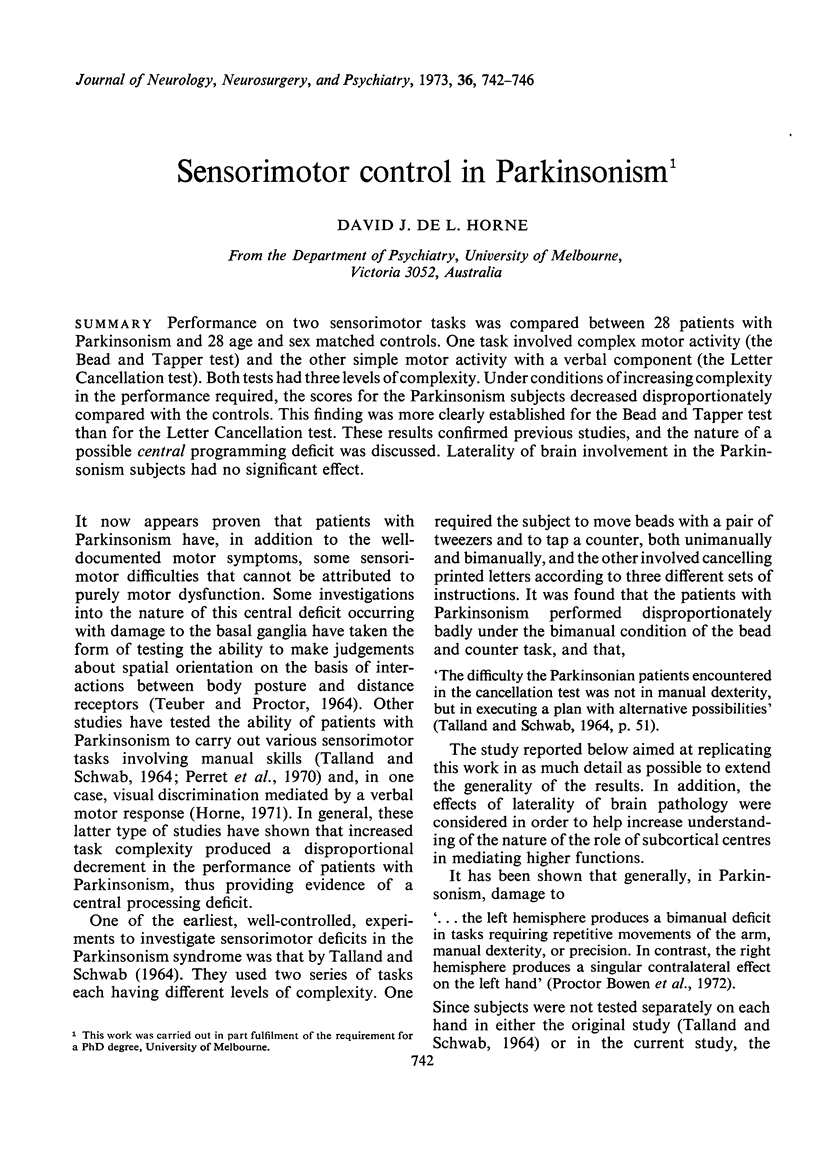
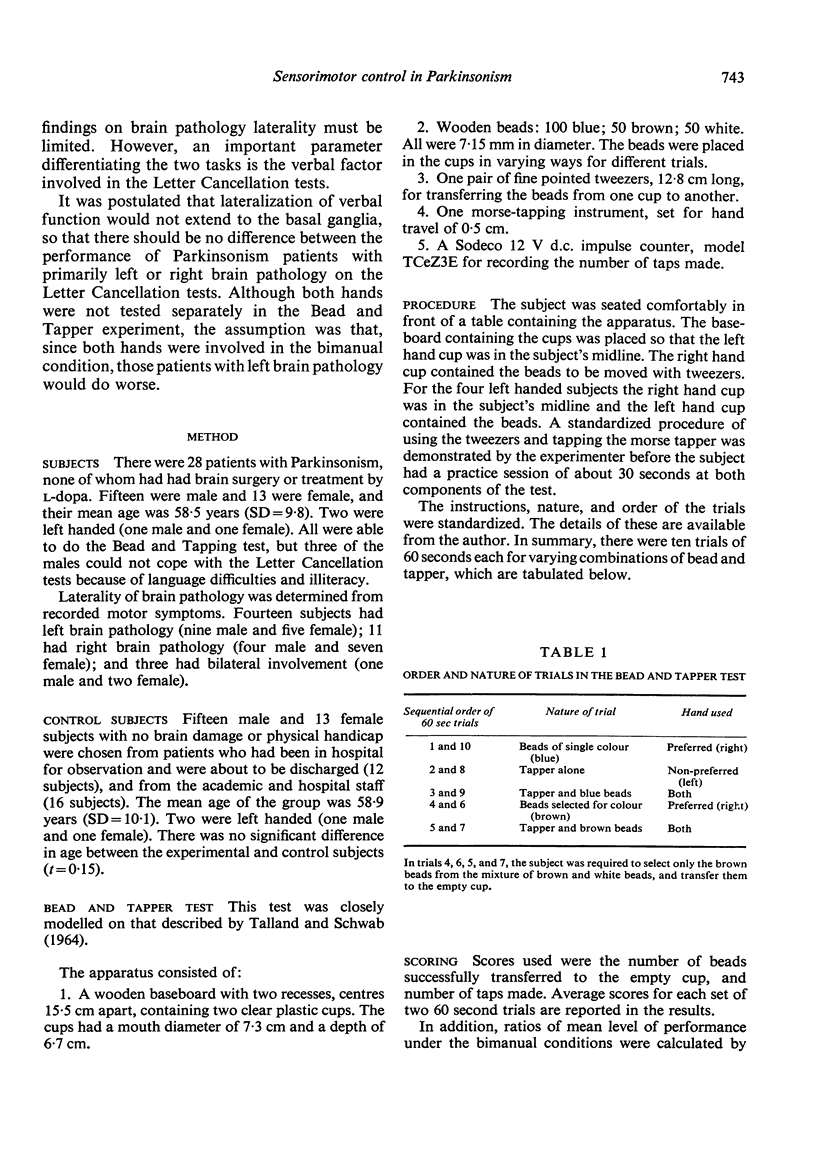
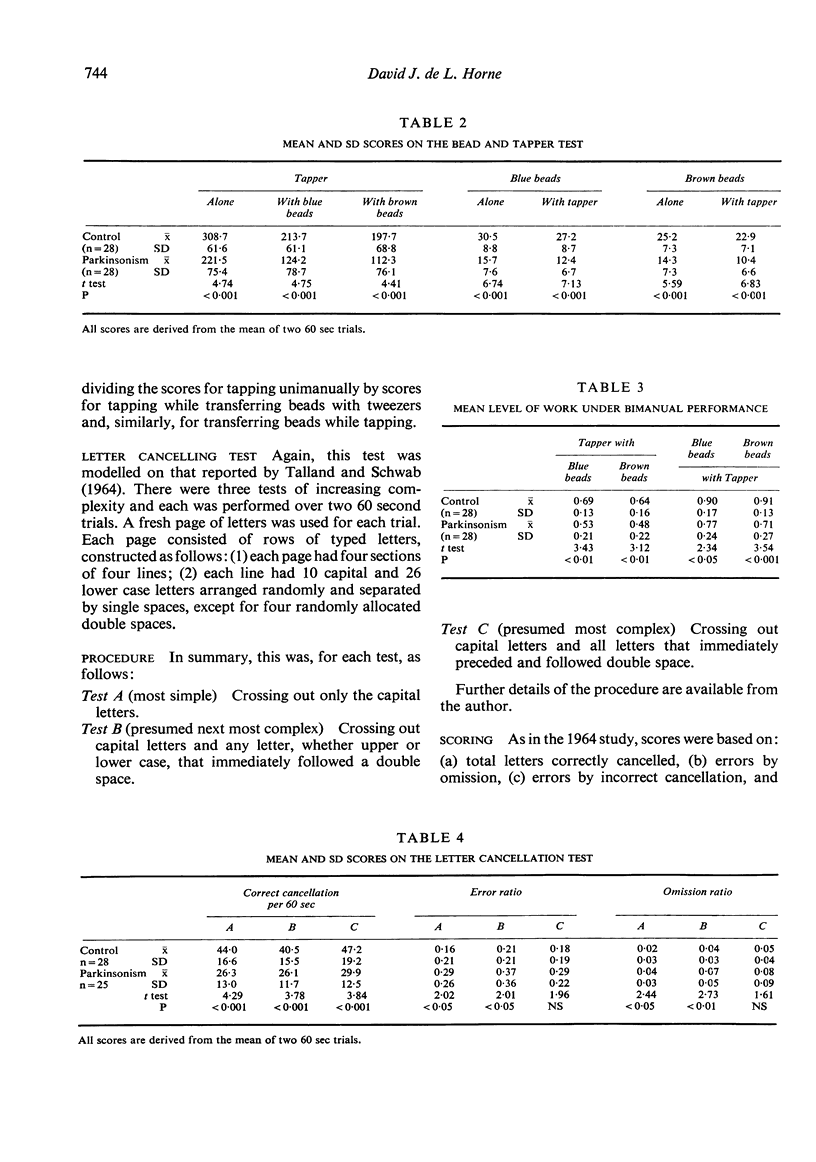
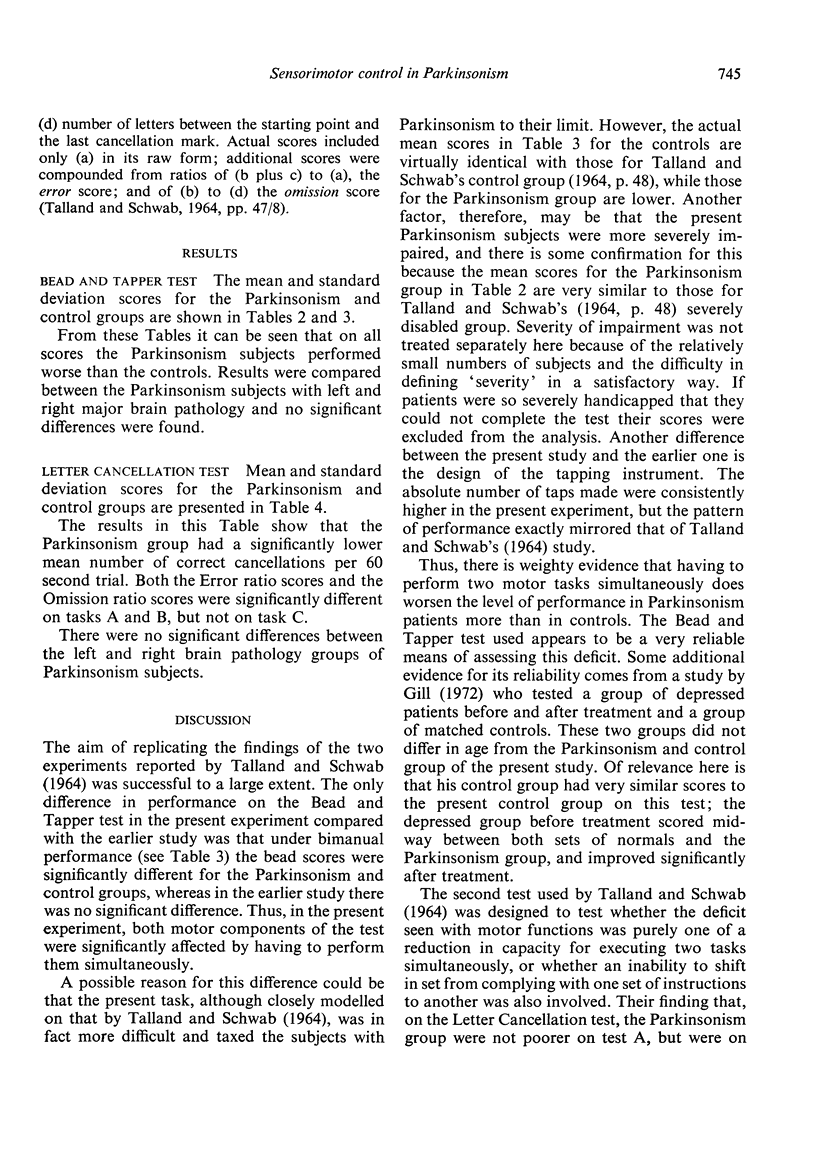
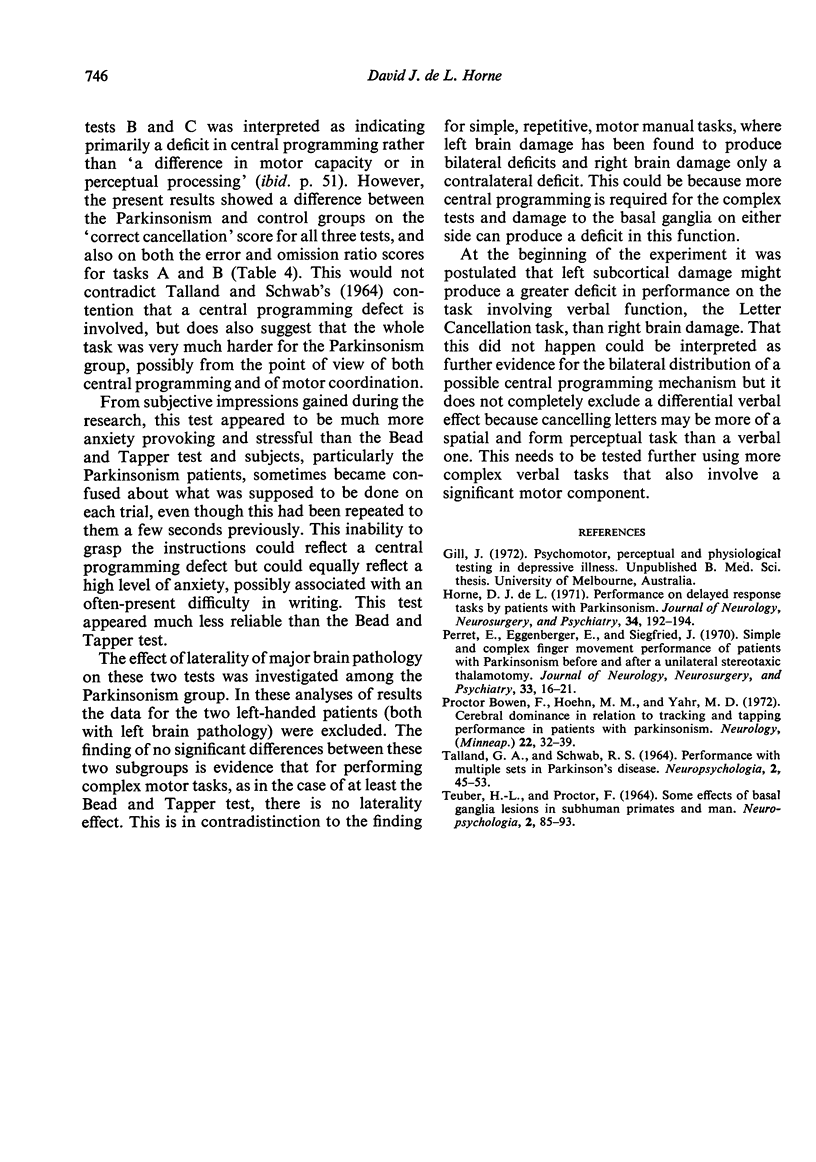
Selected References
These references are in PubMed. This may not be the complete list of references from this article.
- Bowen F. P., Hoehn M. M., Yahr M. D. Cerebral dominance in relation to tracking and tapping performance in patients with parkinsonism. Neurology. 1972 Jan;22(1):32–39. doi: 10.1212/wnl.22.1.32. [DOI] [PubMed] [Google Scholar]
- De Lancy Horne D. J. Performance on delayed response tasks by patients with parkinsonism. J Neurol Neurosurg Psychiatry. 1971 Apr;34(2):192–194. doi: 10.1136/jnnp.34.2.192. [DOI] [PMC free article] [PubMed] [Google Scholar]
- Perret E., Eggenberger E., Siegfried J. Simple and complex finger movement performance of patients with Parkinsonism before and after a unilateral stereotaxic thalamotomy. J Neurol Neurosurg Psychiatry. 1970 Feb;33(1):16–21. doi: 10.1136/jnnp.33.1.16. [DOI] [PMC free article] [PubMed] [Google Scholar]



